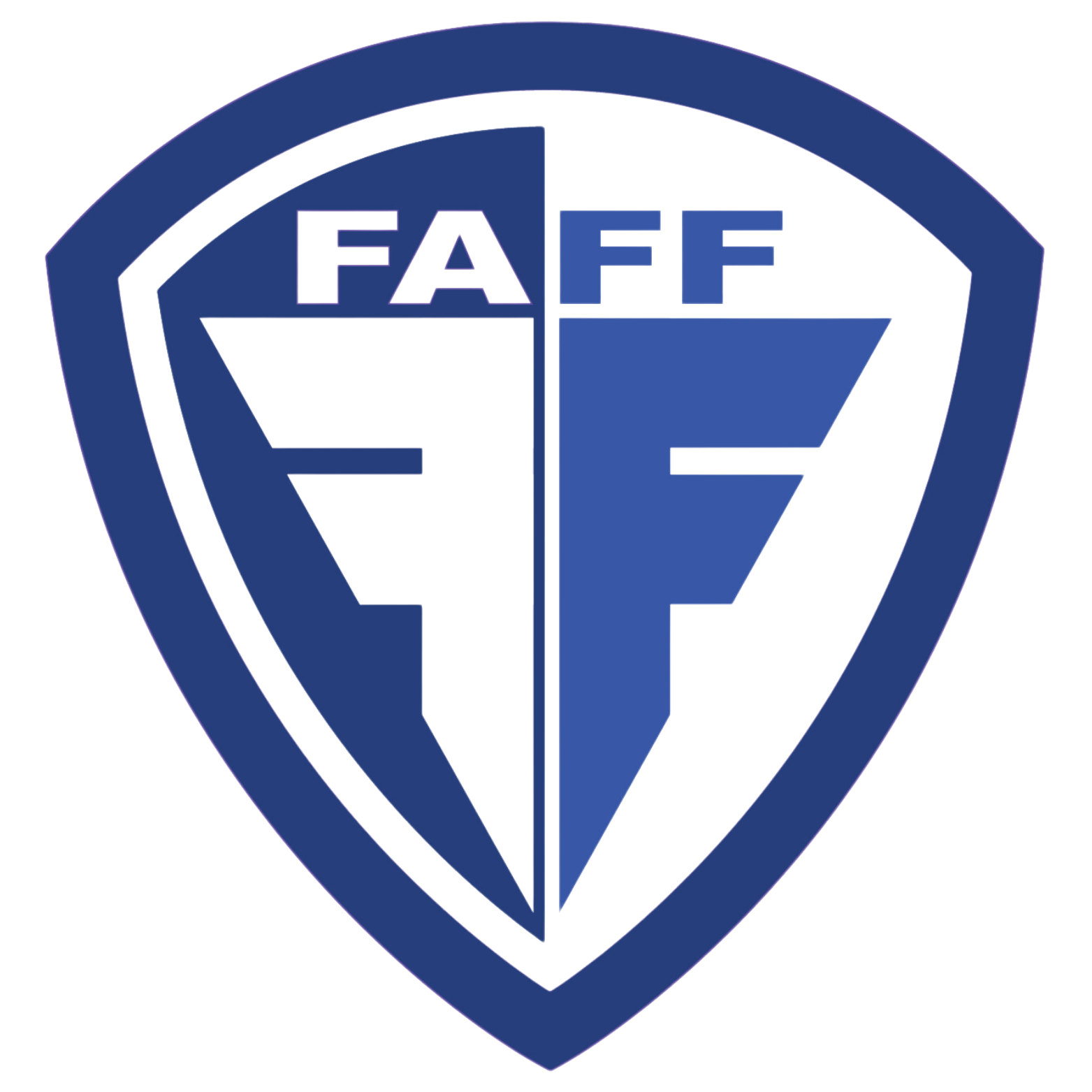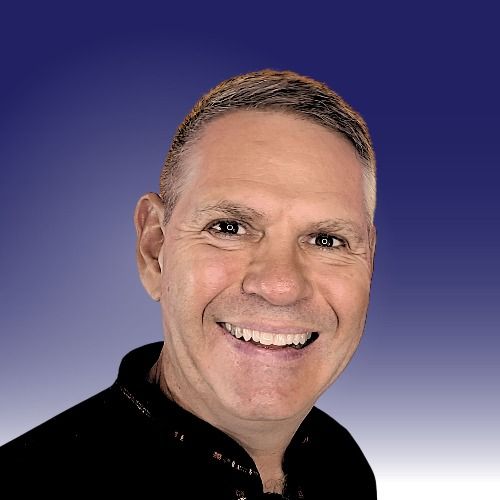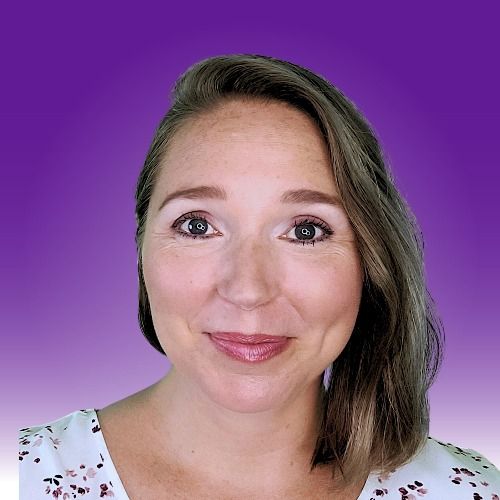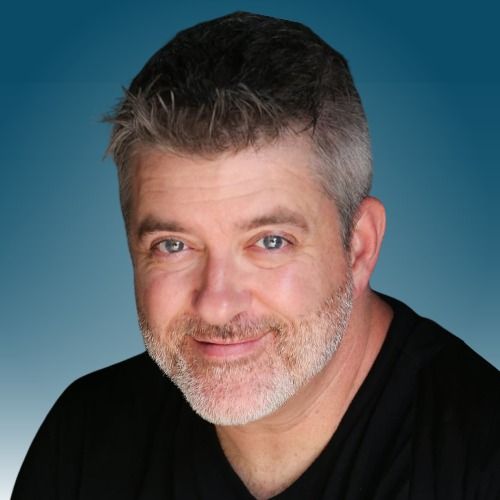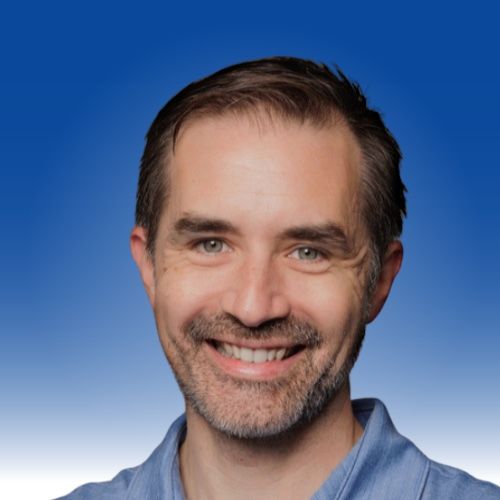Episode 93
Timeless Faith and Family Adventures
Episode 93 - Timeless Faith and Family Adventures
In this episode of the Faith and Family Filmmakers podcast, Geoff and Jaclyn interview Aaron Burns, a filmmaker and team leader known for his directing and producing talents. Aaron discusses his path to filmmaking, his passion for family values, and his experience balancing creative and business aspects of film production. He highlights his projects, such as 'Birthright Outlaw,' 'Legacy Peak,' and 'Beyond the Mask,' and emphasizes the importance of making family-friendly adventure films. Aaron also delves into his background, influences, and the challenges of producing films in an industry resistant to new spaces.
Highlights Include:
- Balancing Family and Filmmaking
- Aaron's Early Filmmaking Journey
- Inspiration and Influences
- Transition to Professional Filmmaking
- Challenges in the Film Industry
- The Role of a Producer
- Collaborating with Other Producers
Bio:
Aaron Burns is a passionate team leader and filmmaker who brings directing, producing, and business expertise to his projects. Aaron directed BIRTHRIGHT OUTLAW, a western starring Sarah Drew and the adventure film LEGACY PEAK, starring Lucas Black for Sony AFFIRM. His producing credits include the record-setting film BEYOND THE MASK, the #1 box-office hit WAR ROOM, as well as OVERCOMER, LIFEMARK, COURAGEOUS LEGACY, and PENDRAGON. He lives in Michigan with his wife Andrea and five children.
https://m.facebook.com/burnscoproductions
Screenwriting Foundations Class: https://www.faffassociation.com/screenwriting-foundations
VIP Producers Mentorship Program https://www.faffassociation.com/vip-producers-mentorship
The Faith & Family Filmmakers podcast helps filmmakers who share a Christian worldview stay in touch, informed, and inspired. Releasing new episodes every week, we interview experts from varying fields of filmmaking; from screenwriters, actors, directors, and producers, to film scorers, talent agents, and distributors.
It is produced and hosted by Geoffrey Whitt and Jaclyn Whitt , and is brought to you by the Faith & Family Filmmakers Association
Support Faith & Family Filmmakers Our mission is to help filmmakers who share a Christian Worldview stay in touch, informed, and inspired. If you would like to assist with the costs of producing this podcast, you can help by leaving a tip.
Enter the Faith & Family Screenwriting Awards festival
Faith and Family Screenwriting Academy: https://www.faffassociation.com/
Script Notes and Coaching: https://www.faffassociation.com/script-services
Copyright 2024 Ivan Ann Productions
Transcript
Welcome to the Faith and Family Filmmakers Podcast.
Geoff:We're happy to be with you today.
Geoff:I'm Geoff,
Jaclyn:And I'm Jaclyn.
Geoff:and today we're talking with Aaron Burns.
Jaclyn:Aaron Burns is a passionate team leader and filmmaker who brings directing, producing, and business expertise to his projects.
Jaclyn:Aaron directed Birthright Outlaw, a western starring Sarah Drew, and the adventure film Legacy Peak, starring Lucas Black for Sony Affirm.
Jaclyn:His producing credits include the record setting film Beyond the Mask, the number one box office hit, War Room, as well as Overcomer, Life Mark, Courageous Legacy, and Pendragon.
Jaclyn:he lives in Michigan with his wife, Andrea, and five children.
Jaclyn:Welcome to the podcast, Aaron.
Aaron:Thank you, it's great to be with you guys today.
Geoff:Yeah, it's great to have you.
Geoff:the first time we met was, I think 2018 at Content.
Geoff:pretty sure that was the year, and you were teaching a screenwriting boot camp that Jaclyn attended.
Aaron:Oh, that's fun!
Aaron:That's right!
Aaron:Yup.
Jaclyn:So five children, Aaron, how in the world do you do all this stuff?
Jaclyn:You're pretty productive.
Aaron:Well, I have, a wonderful wife who is very much involved in What we're doing and supporting our, our adventures together.
Aaron:So it really is something that we view as, you know, our family's team is one of our core values is family.
Aaron:And we try to put that into the films we make and also the way that we make them as one of our goals.
Aaron:So we've got 10 year old down to seven month old.
Aaron:And when we do films, they travel with us, and they're, they're on the adventure, uh, from the start to the finish.
Jaclyn:Wow, that's
Geoff:sounds like fun.
Jaclyn:yeah, definitely.
Jaclyn:All right, so tell us how you got here.
Jaclyn:know a little bit about your history.
Jaclyn:And so actually, this kind of reminds me a bit of your own story, talking about family and making this like family adventure.
Jaclyn:Tell our listeners how you got into your story.
Aaron:when I was a kid, I had a dad who told me stories almost every night, and a mom who gave me good books to read, and just invested in us that way, along with many other things.
Aaron:But I just fell in love with, uh, Imagination and storytelling and power of how a story can move you.
Aaron:When I was probably 13 or 14, something like that, me and my siblings and my cousins decided to just have some fun.
Aaron:In the backyard and, uh, used to tease my dad that one of his biggest mistakes was loaning us the chainsaw so we could build a log cabin in the woods behind the house.
Aaron:And then we said, Oh, now we've got a film, like a short film here.
Aaron:And, and it just kind of spiraled out of control from there.
Aaron:till when it was last year, high school into college, we decided we'd try to make a feature.
Aaron:And of course we didn't pick something normal, like a, you know, some kind of a modern day drama.
Aaron:We decided to do an epic.
Aaron:Adventure film set in the dark ages.
Aaron:So we gathered up all of our, friends and the money I'd save for college, thankfully I got a scholarship so I didn't need it as
Aaron:much, but we, uh, we built this giant, 5th century hill fort and filmed this, this crazy movie over the course of the next three or four summers, not really as a month.
Aaron:Uh, career, but just because we'd love storytelling and then to watch what happened from there, it's, been an adventure with many ups and downs, but so much to be thankful for
Jaclyn:Yeah, that sounds incredible.
Jaclyn:It sounds like a really, fun and amazing childhood.
Jaclyn:Definitely.
Aaron:It definitely was.
Aaron:I
Aaron:remember talking to my parents and just thanking them for all that they invested in us and to give us a sense of adventure and a sense of story and a love for, the Lord and a love for people.
Aaron:I just, I feel so blessed and it's.
Aaron:I'm hoping to pass along to my kids as well.
Jaclyn:historical fiction, you know, reading about the
Aaron:Hmm.
Aaron:I loved.
Aaron:Adventure stories of all kinds.
Aaron:So I, think Robin Hood and Treasure Island and the Chronicles of Narnia, you know, are some, uh, historical fiction, you know, reading about the founding fathers, or even, you know, the American West, like David Crockett and the Alamo and, you know, stories like that.
Aaron:And then, you know, dark ages and middle ages stories.
Aaron:And honestly anything that had heart and heroes and adventures, Those were the kind of stories that really inspired me.
Aaron:And I enjoyed reading as a kid.
Jaclyn:I guess evident today.
Jaclyn:A lot of your stories have those kinds of elements in them, which is awesome.
Jaclyn:And I think we need more of those.
Jaclyn:It's always fun to go on an adventure.
Geoff:let's move ahead.
Geoff:and talk about when you got into film on a more professional level.
Geoff:For us, the first film we saw of yours was Beyond the Mask.
Geoff:we've actually watched it more than once.
Jaclyn:theaters in Canada.
Geoff:that's right, when it was first released, I don't think this was your first film, but, tell us how you moved into working on films professionally.
Aaron:when I was in college, I went to a Oakland University here in Michigan, and I wasn't studying filmmaking.
Aaron:It wasn't something that I thought would be A career for me largely because nobody I knew did that.
Aaron:And it's just in Michigan, in the Detroit area, everybody's in the auto industry and it's parts per million and, you know, 10 year timelines and all very structured and organized.
Aaron:And the idea of entrepreneurism.
Aaron:And storytelling and creativity in the arts, is just not a huge thing in my community.
Aaron:So I remember
Aaron:I'll say there was probably three big influences that drew my heart towards filmmaking as a vocation.
Aaron:the first was the opportunity that we had making this, film Pendragon, seeing the impact that it had around the world.
Aaron:It's just a little movie literally that I made in high school and, you know, my undergrad.
Aaron:Now we start getting letters from families in the Philippines and, you know, families in South America.
Aaron:And it's, this little tiny movie we made is now in 14 countries and four languages, you know,
Aaron:all over the world.
Aaron:and people are writing and saying, hey, our kids really enjoyed this and were impacted by the message that you shared in it.
Aaron:When are you going to make your next movie?
Aaron:And we were kind of like, uh, Not planning to.
Aaron:so just to see the power of story on a global scale like that was pretty remarkable and then two other things one, God a mentor my way a guy from my church.
Aaron:He kind of grabbed me by the proverbial scruff of my neck and And said, you've been given gifts and opportunities and talents.
Aaron:How are you going to use those for the Lord?
Aaron:And he started just really discipling me, you know, putting my nose into good Christian books and making me digest the Bible and process on my faith for myself.
Aaron:What had been, you know, if you kind of grow up around religion and faith, it can be a cultural thing, but if it's going to be something that's real for you, you have to really own it.
Aaron:So
Aaron:that was, An awakening
Aaron:for me during my college years, I was gifted with someone who is discipling me and making me ask those important questions.
Aaron:And
Aaron:then in business school, as I was working on my, master's degree, my professor put up what's called the unique space map.
Aaron:And he said, if you're going to start a business, you have to compete differently.
Aaron:like Tesla did making high end, really cool electric cars, you know, back eight or 10 years ago, nobody else was doing that.
Aaron:So they were able to get into a very crowded space automotive because they weren't competing with, you know, F 150, they were doing something unique.
Aaron:so my assignment was, you know, figure out a business for, for class is what you're going to do.
Aaron:And it kind of dawned on me that the idea of doing timeless faith and family adventure films.
Aaron:Nobody else was doing that, and there was nothing for families to watch in that space.
Aaron:so my passion to do it as a career, as a vocation, started to grow out of those things.
Aaron:As I saw God using this little tiny movie that we'd done, and I had this desire to really engage in serving the world and sharing the love that God had given me with others.
Aaron:And then seeing the opening opportunity to potentially do that.
Aaron:Those things kind of combined.
Aaron:and as we finished college, we embarked on the adventure of, trying to produce the movie Beyond the Mask.
Jaclyn:Wow, that sounds amazing.
Jaclyn:What's interesting is that you were looking at, you know, where is there this space that's not, got a lot of, well, competition, but it's funny because like you know, when you're wanting to produce a movie, you look at what is already selling most of the time.
Jaclyn:So it's like you looked at it, from a business perspective, which you would think would be the same as looking at it from a, production perspective, except that I don't understand why there is this difference because when it comes to distribution, it's like, well, I need to know what box it's going to fit in.
Jaclyn:So did you have any, I guess clash when you moved into a space that wasn't already, you know, successful and, and booming?
Aaron:Tons of clash.
Aaron:Yes.
Aaron:It's very interesting because filmmaking is a, it's a risky business.
Aaron:Because you have to, from a cash flow perspective, you have to spend all the money before you get much revenue back, if any.
Aaron:So it's, A lot of output and then you wait to see what happens with the marketing.
Aaron:Now, there are obviously things you can do
Aaron:to
Aaron:Reduce risk on those ends, but it's kind of a fear driven industry.
Aaron:I was just having a meeting with someone that you was discussing one of the projects we're developing And they said well, if you could get this person attached then we'd all be interested I said person wouldn't change anything.
Aaron:It just would make you not look bad if things go belly up because it'd have someone else for you to pawn your excuses off on.
Aaron:it's, a very fear based in some ways industry, which is, you know, you say risk averse or, fear based, but it's more risk averse than it is looking for unique opportunities.
Aaron:So the mindset that I brought to it was probably different than the way most execs brought to it.
Aaron:And so that was, It's definitely, a challenge to push that through.
Aaron:But then as you see movies like that, performing , then gets people more excited to partner with you for the next one.
Jaclyn:Right, exactly.
Jaclyn:our other guest, Alexandra Boylan, said pretty much the same thing.
Jaclyn:Like, she wanted to do something in a space that there wasn't already an audience for.
Jaclyn:And she said, well, there's, there's no audience because nobody's doing it.
Jaclyn:That's all, you know, and, she pushed forward and she was successful.
Jaclyn:And so you've done the same thing and proven that yes, there is an audience for it.
Jaclyn:It's just, you have to give them something to come to in order for the audience to show up.
Aaron:Yeah.
Aaron:And I, I know for me, as I think about, try to do family movie night once a week and to find something that will
Aaron:entertain my kids.
Aaron:And the thing about that word, it means entertain is to hold one's attention and to make you think.
Aaron:Like to entertain a guest
Aaron:or entertain a thought, right?
Aaron:So to have something that isn't just mind numbing, you know, amusement, but will, actually entertain your kids and will leave you with something to chew on after that.
Aaron:it's challenging to find something that's, appropriate for a family, that isn't an adventure and isn't just, You know, not to belittle any other, kind of films out there, but many films in the quote unquote faith based space are targeted towards an older and more female audience rather than a young family audience or family audience.
Aaron:So, it's challenging,
Aaron:I know, for me to come up with the next movie that we're going to
Aaron:watch and, you know, you can use filtering services and stuff to improve films, but to have one that's made for your
Aaron:family, and designed with them in mind is, is one of our goals, because I love my kids, want to make content and tell stories that will move them, and hopefully do that All the other families around the world who are wanting the same thing we're wanting.
Jaclyn:Yeah, and I know, like, when I was growing up, I remember watching movies with my family, and I remember having conversations afterward, and I know that there can be some, um, incredible conversations that can come out of movies.
Jaclyn:so for us as filmmakers to be able to make those movies that will provide opportunities for families to have conversations.
Jaclyn:And some conversations are hard to have.
Jaclyn:And so sometimes it's easier to open the door through a film than just, like, well, sit down kids.
Jaclyn:We need to talk about this.
Jaclyn:You know what I mean?
Aaron:For sure.
Aaron:And it, in the olden days of, you know, decades gone by, telling stories in community.
Aaron:And nowadays so many people just watch movies on their phones.
Aaron:There's nothing wrong with that, but to be able to come together, bring even a few families together to go to a theater or to watch it, you know, at home on a big TV and have that experience of having gone on a journey and adventure.
Aaron:Together, it becomes a part of your shared memory.
Aaron:And you think of how often people will quote lines from movies or, lines from stories and reference characters and those kinds of things that can become a part of our cultural fabric.
Aaron:I think of an opportunity I had years ago to go, to London and to go to you know, one of the giant cathedrals there and you walk in and there's all these statues of Lords and ladies and, you know, great men of the past.
Aaron:Who you have no idea
Aaron:who they are.
Aaron:But then as you walk farther back, you get to what they call Poet's Corner, and you see C.
Aaron:S.
Aaron:Lewis, and Chaucer, and Jane Austen, and all these names that you know every single one of them.
Aaron:And the characters that they created, I think of Dickens creating Christmas Carol, and Scrooge, It's such a real character that, you know, we read Scrooge a few years ago with our kids at maybe his last Christmas for the first time.
Aaron:And now a touchstone and a conversation.
Aaron:and he's more alive today, uh, mentally he's still a character.
Aaron:than some of these great giant statues in the front of cathedral back in the day.
Aaron:So I think about the role of the storyteller in culture and the opportunity that we have.
Aaron:the privilege to get to, to tell stories is one that we take seriously and talk about a lot.
Aaron:what does our culture need us to say?
Aaron:yes, it's showbiz.
Aaron:There's both halves of that.
Aaron:But, how can we take our responsibility seriously?
Geoff:Let's talk about producing for a minute.
Geoff:know you have quite a few producing credits.
Geoff:I was thinking as you were talking about, in grad school and studying business, I don't necessarily think that, all producers go that route, but I can imagine that, some of what you learned was an asset to you as a producer.
Aaron:Absolutely, Geoff.
Aaron:It's, really interesting as you think about the term showbiz There's the creative elements, and there's the business elements.
Aaron:And there's kind of also a third that I'd call like, the logistic elements.
Aaron:So, with any, film production, you have to get the financing on the front end and the distribution on the back end.
Aaron:And those pieces don't work, it doesn't matter how good your movie was.
Aaron:You won't get to make many more films if those pieces don't come together.
Aaron:And if you can't get the financing, you won't ever get to make a movie at all.
Aaron:So that's the, part of the challenge is learning the biz side of it.
Aaron:And then as you move into, say you have a financing place, you move into production, there's a whole gigantic logistics element
Aaron:of how many shooting days do you have, you have a great location, you But it's five miles down a one lane, country road with no parking at the end of it, no bathrooms nearby.
Aaron:So the elements of putting all of the pieces together is what a producer gets the privilege of doing.
Aaron:I say that every movie starts with a, oh, wouldn't it be cool if Conversation.
Aaron:Wouldn't it be cool if we told this story or explored this theme?
Aaron:And it's the producer's job to get from the wouldn't it be cool if,
Aaron:along the way serving all of your constituencies, all of your stakeholders, of your crew, your cast, your investors, your financers, your studio.
Aaron:And your audience, and then getting that idea into the hearts and minds of your audience and gifting them that story.
Aaron:That's the producer's job, and it's, a challenge, and when it's bad, it's bad, but when it's good, it's really fun, and it's, a joy.
Geoff:a lot of films certainly have multiple producers and various producer roles.
Geoff:tell us a little bit about that and what role you tend to fill if you tend to fill one on a more common basis.
Aaron:Yeah, so going back to those, analogies, thinking of the three areas, there's kind of the creative, the finance, and the logistics.
Aaron:So often the term executive producer gets thrown around as someone who is kind of in the deal making finance piece.
Aaron:but then there's a bunch of other, you know, associate producer, co producer.
Aaron:titles are pretty vague and sometimes poorly defined, but typically I'll look at those kind of areas of business, logistics, and creative, and you can carve those up into different categories, and you need people responsible for those, and during production itself, The logistics category split up into each one of the departments that's under the team, and if we're, like, I look at the movie, that I did last year The Forge, was Stephen and Alex Kendrick's movie, they were the creative producers on it.
Aaron:So on that one, they didn't ask me, hey, what do you think about the theme?
Aaron:Like, what do you think about the characters?
Aaron:Of course, you know, they invited for my opinion, but that wasn't open for conversation because they were serving that role as the creative producers.
Aaron:And also they were working with, um, Sonia Firm, which, um, I've done, business deals with them on other projects, but they were handling financing and distribution part and largely running with the creative role.
Aaron:where I would step in, along with the rest of our producers, is on scheduling, Budgeting, uh, locations, casting, you know, managing post production, managing timeline and schedules in those, pieces.
Aaron:And then, you know, from there we'd split those albums down even more on our team.
Aaron:So I have a good friend, Justin Tolley, who is a master of the production office.
Aaron:And so he kind of handles the detail budgeting.
Aaron:And works with a bonding company and works with the accountants and payroll and all those things.
Aaron:So, on that one I, you know, particularly handled the cast.
Aaron:And so I'm, you know, doing those deals, doing the auditions, negotiating those pieces.
Aaron:and then I handled all of post production.
Aaron:So I'm setting up the editing process, setting up the DI process and the VFX and all those things.
Aaron:So, when you have the privilege of having multiple producers.
Aaron:It's such a joy to split up the work into different categories.
Aaron:So that's just one example of a project.
Aaron:On another movie like Birthright Outlaw, that we shot the fall before, it was me and David Cook.
Aaron:were the two main producers, and then we had, several, co producers on that as well, handling various pieces, but I was directing that film, so I was handling the business side, and some of the higher, level casting pieces, but then by the time we got to production, I was almost entirely stepping out of the logistics and the detail roles, And handing those over to, David and Kevin and, Justin and Sarah were two other producers on, that project, handing those pieces over to them so I could focus on, the creative part of it.
Aaron:So I think it's valuable for anyone in the space to learn as much as you can about every discipline.
Aaron:I could never light a set, like a gaffer or a director of photography could.
Aaron:But I can tell you if the process is going well.
Aaron:And I can tell you how much we should be spending on it, how long things should take.
Aaron:I know enough to understand those pieces.
Aaron:To understand what that team's needs are.
Aaron:and so how we can set them up to do their jobs well.
Aaron:And I feel like that's the producer's job is find, you know, largely finding the right people.
Aaron:And providing them with the things that they need, coordinating, uh, sharing the vision, and allowing them to be successful in their, key areas of expertise.
Jaclyn:That sounds so smart.
Jaclyn:like to understand what other people's roles are and what their needs are.
Jaclyn:Not to say that you have to do all of the roles, but if you have a good understanding of what it takes to fulfill that role, it definitely is going to make everything flow smoother, not only because you can provide for needs, but like being able to give them the space that they need to do their job well, I guess would also be an important thing to factor in and understand and be able to encourage and stuff like that.
Jaclyn:where can people find you and find your work?
Aaron:So probably the best way to stay up to date, is our Facebook page.
Aaron:our production company is.
Aaron:We call it Burns and Company.
Aaron:Uh, and I'll just take one second to talk about that.
Aaron:So the idea of a company, I like to think back to the times of, you know, Robin Hood and Company, or Gandalf and Company.
Aaron:The, original meaning of the term is a group of adventurers, you know, banded together on a quest.
Aaron:So, one of my greatest joys is bringing together a company of adventurers to go on an adventure to tell an adventure story.
Aaron:So, we like to invite people into our filmmaking family and to take them on adventures all over the world.
Aaron:And, kind of the core values that we look at as we're looking at what stories to tell.
Aaron:We have four words.
Aaron:It's timeless.
Aaron:Faith, family, adventure.
Aaron:And our goal is to live out those values as well as put them on the screen.
Aaron:So you can stay up to date at Burns and Company Productions on Facebook or our website burnsco.
Aaron:us
Jaclyn:Awesome.
Jaclyn:Well, I'm looking forward to talking with you more in the next episode.
Jaclyn:Thank you so much for sharing your journey with us today.
Jaclyn:It has been an adventure.
Aaron:Thank you
Geoff:Thank you,
Geoff:Aaron.
